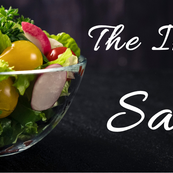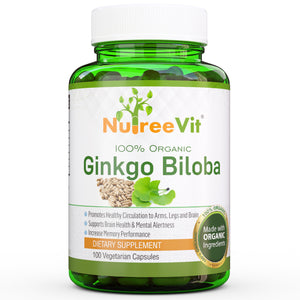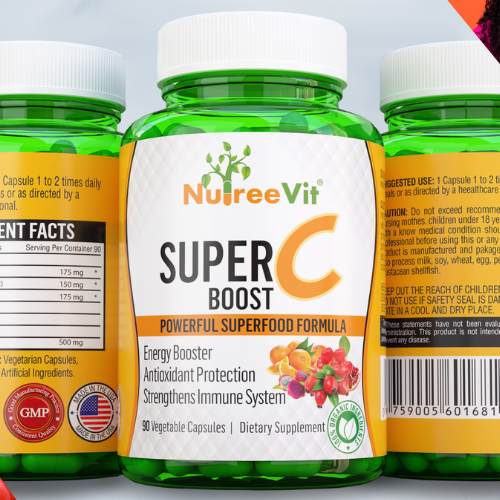The Importance of Salads: A Nutritional Powerhouse Backed by Science
Salads are often celebrated as the cornerstone of a healthy diet, but their importance goes beyond just being a low-calorie option. Packed with essential nutrients, vitamins, and fiber, salads are an easy and versatile way to support overall health and well-being. Let’s dive into why salads deserve a prominent place on your plate, backed by scientific evidence.
1. Rich in Essential Nutrients
Salads made with a variety of vegetables, fruits, and proteins provide a broad spectrum of vitamins and minerals essential for health. For instance:
-
Leafy greens like spinach and kale are rich in vitamins A, C, and K, as well as folate.
-
Tomatoes are a great source of lycopene, a powerful antioxidant linked to reduced risk of chronic diseases (1).
-
Cucumbers contribute hydration and small amounts of potassium and magnesium.
-
Protein toppings such as grilled chicken or chickpeas add essential amino acids for muscle repair and growth.
A 2017 study published in the Journal of the Academy of Nutrition and Dietetics found that people who consumed salads with a mix of vegetables had higher levels of key micronutrients, including vitamins C and E, folate, and carotenoids, compared to those who didn’t eat salads regularly (2).
2. Supports Digestive Health
Salads are an excellent source of dietary fiber, which plays a crucial role in digestive health. Fiber helps regulate bowel movements, prevents constipation, and supports a healthy gut microbiome. A review in Advances in Nutrition highlights that higher fiber intake is associated with reduced risk of colorectal cancer and improved gut health (3).
Including high-fiber ingredients like lettuce, carrots, cucumbers, and seeds in your salads can help you meet your daily fiber requirements while promoting satiety and reducing overeating.
3. Helps Manage Weight
Salads are naturally low in calories when made with whole, unprocessed ingredients. They are also highly satiating due to their high water and fiber content. Research published in Appetite found that starting a meal with a low-calorie salad can lead to reduced calorie intake during the main course, making salads an effective tool for weight management (4).
To maximize the weight-management benefits of salads, avoid calorie-dense dressings and instead opt for healthier options like olive oil and lemon juice.
4. Boosts Antioxidant Intake
Vegetables and fruits commonly used in salads are rich in antioxidants, which combat oxidative stress and inflammation in the body. For example:
-
Berries like blueberries and cranberries contain anthocyanins, which support heart health.
-
Carrots are packed with beta-carotene, a precursor to vitamin A that supports eye health.
A 2015 study in Nutrients concluded that a diet rich in antioxidants can lower the risk of chronic diseases such as heart disease and diabetes (5). Incorporating a rainbow of colors in your salad ensures a diverse intake of these powerful compounds.
5. Encourages Hydration
Many salad ingredients have high water content, helping you stay hydrated. For example:
Staying hydrated is vital for maintaining energy levels, supporting digestion, and regulating body temperature. Research from Nutrition Reviews highlights the importance of water-rich foods in preventing dehydration and supporting overall health (6).
6. Customizable to Dietary Needs
Salads are incredibly versatile and can be tailored to suit different dietary preferences and restrictions. Whether you’re vegan, vegetarian, paleo, or keto, salads can accommodate your needs. Adding ingredients like nuts, seeds, lean proteins, and healthy fats ensures a balanced and satisfying meal.
Tips for Maximizing Salad Nutrition
To get the most out of your salads, follow these tips:
-
Add a healthy fat: Fats like avocado or olive oil enhance the absorption of fat-soluble vitamins (A, D, E, and K).
-
Use fresh, seasonal ingredients: This ensures maximum nutrient density and flavor.
-
Incorporate proteins: Options like chicken, tofu, eggs, or legumes make your salad a complete meal.
-
Experiment with textures: Combine crunchy (nuts, seeds) and soft (avocado, boiled eggs) elements for a satisfying experience.
Pairing Salads with Nutreevit Supplements
To enhance the benefits of your salads, consider pairing them with Nutreevit Supergreens Powder Energy Booster. This supplement is packed with superfoods like spirulina, chlorella, and barley grass, providing an extra boost of vitamins, minerals, and antioxidants to complement your nutrient-rich meal.
Simply mix a scoop of Supergreens with water or juice as a refreshing drink alongside your salad, and enjoy a comprehensive dose of health and vitality.
Final Thoughts
Salads are more than just a side dish—they’re a powerful way to nourish your body and support long-term health. From boosting digestion to providing essential nutrients and antioxidants, the benefits of salads are backed by robust scientific research. Make salads a regular part of your diet, and pair them with quality supplements like Nutreevit to maximize their health benefits.
References
-
https://pubmed.ncbi.nlm.nih.gov/ (Lycopene and Chronic Diseases)
-
https://pubmed.ncbi.nlm.nih.gov/ (Salads and Micronutrient Intake)
-
https://academic.oup.com/ (Fiber and Digestive Health)
-
https://pubmed.ncbi.nlm.nih.gov/ (Salads and Weight Management)
-
https://pubmed.ncbi.nlm.nih.gov/ (Antioxidants and Chronic Disease Prevention)
-
https://academic.oup.com/ (Hydration and Water-Rich Foods)





